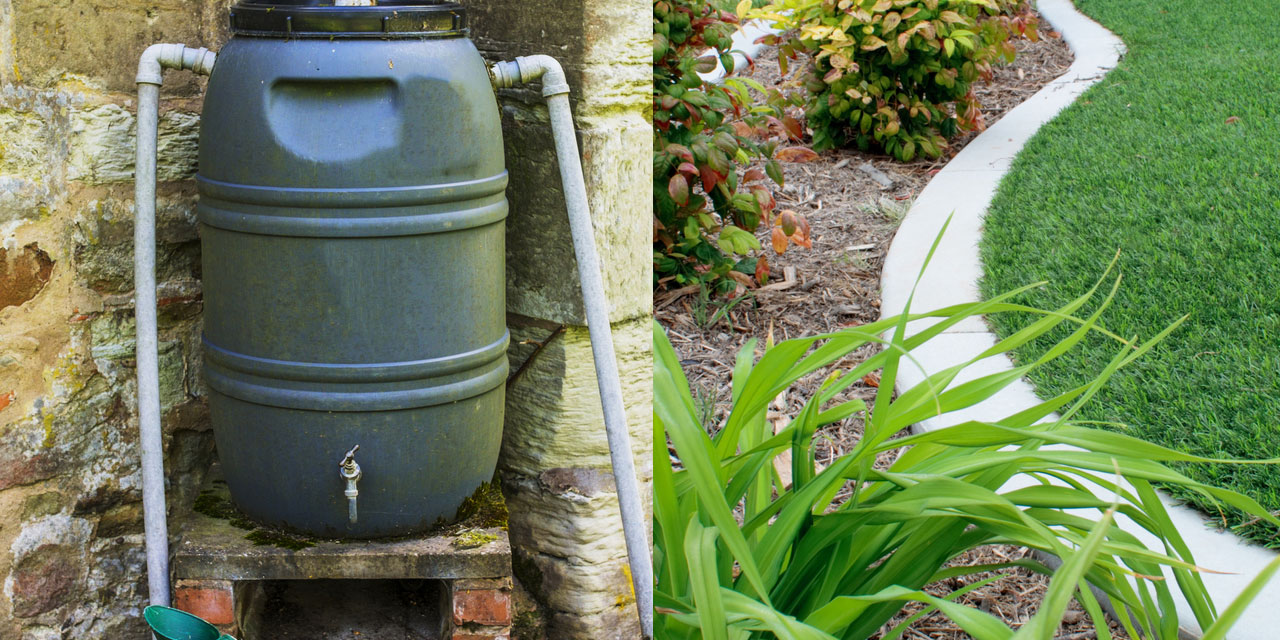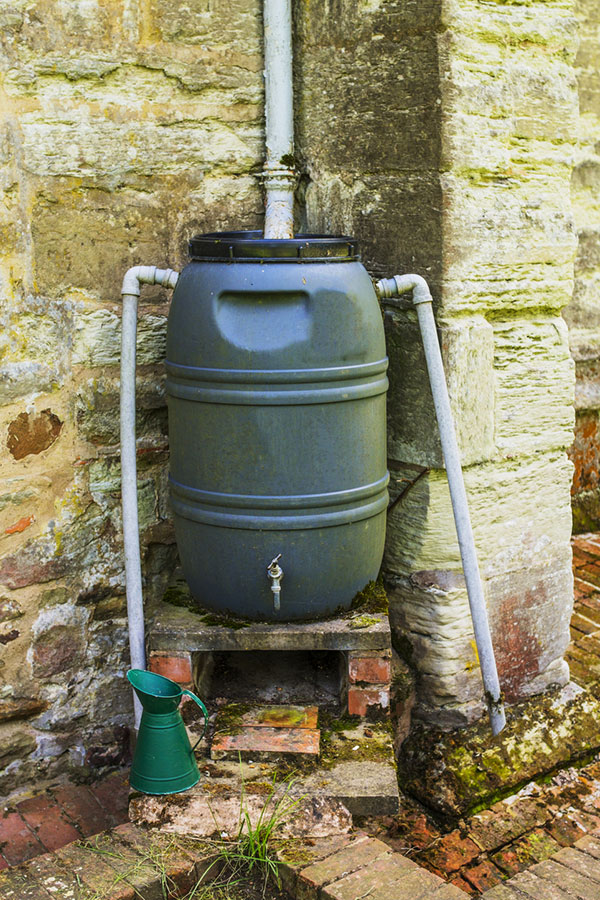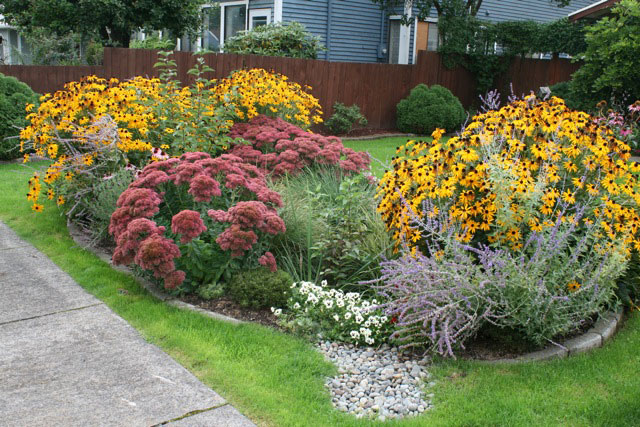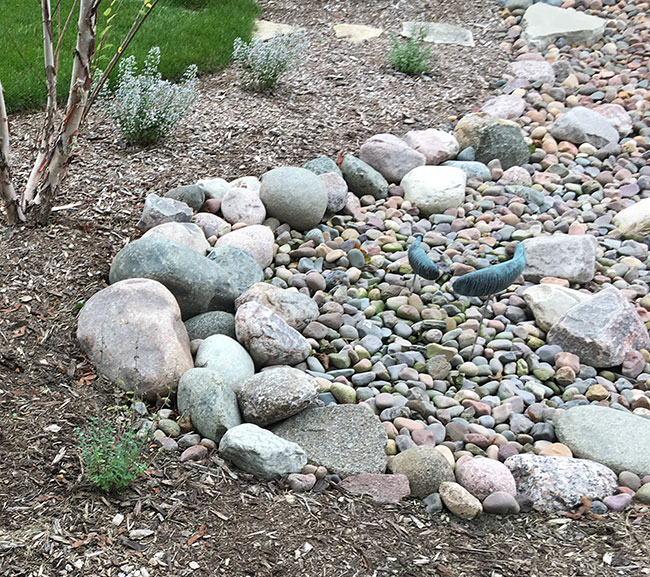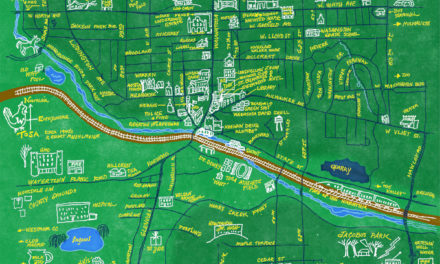You live in Wauwatosa. You walk for coffee, bike to the park and your local pool has a killer waterslide. You’re winning.
You also have a small yard that has been compressed over the past 50 years. Your driveway is about the width of a mid-sized SUV, with a tiny strip of dirt running directly along your foundation.
Your gutters and downspouts can’t handle a routine downpour, much less a 100-year rain event. They overflow and cascade down the side of your house, down through that tiny strip of dirt, along your foundation, and right into your basement.
You’ve got water problems.
Water is the most persistent of all nature’s forces. It will find a way around, over or through any obstacle in it’s quest to get to…your basement. There are, however, some easy steps you can take to prevent water damage to your foundation and your basement.
Step 1- Grading
Ensure that your landscaping is moving water away from, not toward, your house. Using a combination of gravel, dirt and mulch, your landscaping should be sloped down and away, with a 1 inch drop every foot from your foundation.

Step 2- Gutters and Downspouts
Watch your gutters and downspouts during a heavy rain. Can they effectively move the water from your roof to an endpoint far enough away (8’-10’ minimum is recommended) from your house that your foundation is not at risk?
If your gutters are overflowing and spilling over, if your downspouts leak or discharge water right next to your foundation, you may need to have your gutters inspected by a professional. The gutters may not have adequate slope or depth, or they could be leaking at the joints. They could also be clogged with debris. Your downspouts may need extensions to carry the water farther from your house.
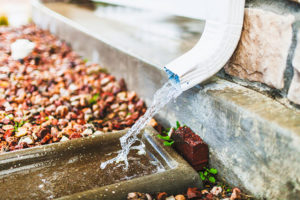
Step 3- Turf Health
The turf around your home is one of the best water collection and storage units available. Aeration, along with mowing higher than 3 inches are the easiest and most cost-effective ways to turn your turf into a sponge.
Core aeration pulls small plugs out of the turf and leaves them in the grass. The small holes let air and water reach deeper into your turf, making your turf healthier and reducing the amount of water that runs off your turf on to sidewalks and .
Proper fertilization also improves turf health which leads to better water infiltration and storage. Using organic fertilizers reduces the amount of chemicals that run-off into local waterways.
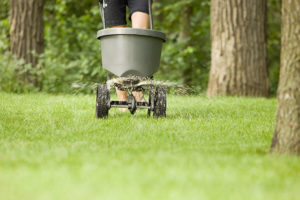
Rain Barrels
Rain barrels are a good way to save water in the early part of a rain event. Rain barrels connect to your downspouts and store rainwater. The rain barrels can be connected to soaker hoses that gradually release water into the landscaping to keep plants irrigated while avoiding a large amount of water infiltrating the soil and sewer system in a short time.
Rain barrels are not designed for 100 or even 25-year rain events and can overflow, potentially causing serious water problems. Most rain barrels have overflow holes, spigots, or spouts that can be directed away from your home. In some cases rain barrels should be modified with larger overflow extensions to handle larger storms. Rain barrels must also be removed in the fall and stored for the winter, and extensions put on the downspouts.
Longer-Term Solutions
If you are experiencing water pooling, flooding or basement infiltration, more comprehensive solutions may be necessary.
Rain Gardens
Rain gardens are planted depressions that allow rainwater runoff from impervious surfaces such as compacted turf, driveways or sidewalks to be absorbed. Rain gardens use plants that can tolerate both drought and wet conditions. Well-thought out rain gardens are a great solution for low-lying areas that routinely collect water.
Dry River Beds
Dry river beds are features installed to move water away from structures or low-lying areas during rain events. Dry river beds use gravel bases and decorative stones in conjunction with hardy plants to create water features that look great when dry but move and manage water during heavy rains.
Milwaukee, home of MMSD and The Global Water Center, is a leader in water technology, developing innovative ways of preventing runoff and water damage, increasing water absorption by turf and landscapes, and reducing the amount of rainwater funneled into overtaxed municipal systems.
Stormwater Solutions Engineering, LLC is a Milwaukee company that is leading the way in residential water runoff management. Their StormGUARDen is a comprehensive, permanent solution to residential water runoff problems.
The StormGUARDen manages water off your roof for water quality and quantity. The device holds and slowly releases 350 gallons of rainwater to plants, works through the winter, and provides a more ergonomic gardening experience.
Water management is one of the most difficult challenges facing homeowners in almost all climates. Following these tips can keep your foundation and basement dry and your landscape beautiful.
Matt Astbury, Tosa resident, is a partner at The Green Team of Wisconsin. The Green Team is a local landscaping firm specializing in sustainable landscape management, complete property maintenance, thoughtful design and installations, and all-natural lawn care.

